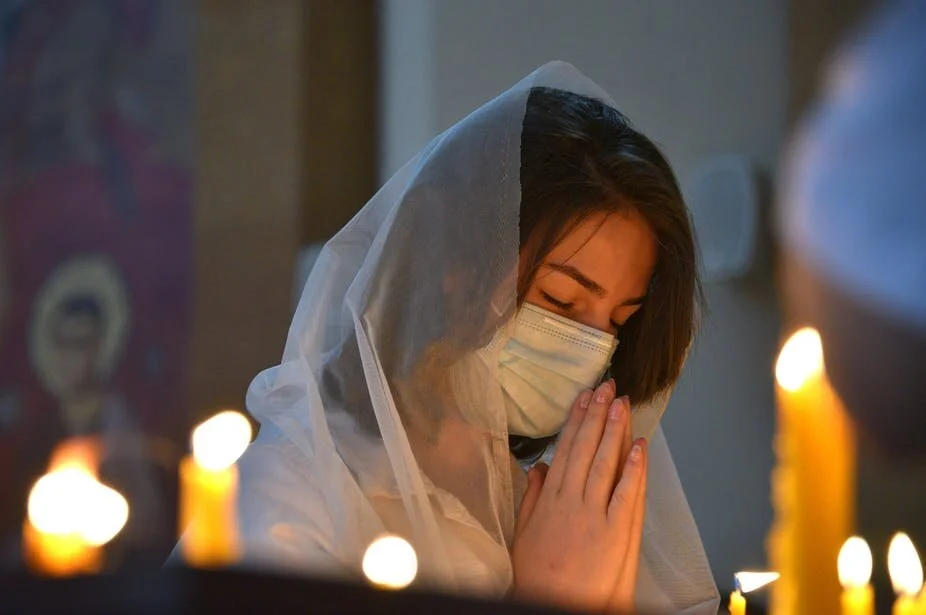(OPINION) Some of historian Tom Holland’s insights are surprising, including his contention that modern developments — including the transgender rights movement and a recent spike in atheism — probably wouldn’t exist were it not for the West’s Christian philosophical and moral foundations.
Read More(OPINION) After researching everything I could find about supposed miracles — from books and articles, doctors, religion experts, skeptics and, naturally, dozens of people who’d claimed they’d run smack dab into the hand of God — here are three conclusions.
Read More(ANALYSIS) The number of individuals in the U.S. who do not identify as being part of any religion has grown and “the nones” are now larger than any single religious group. According to the General Social Survey, religiously unaffiliated people represented only about 5% of the U.S. population in the 1970s. This percentage began to increase in the 1990s and is now around 30%.
Read More(REVIEW) Though “Eli Harpo’s Adventure to the Afterlife” author Eric Schlich comes to this tale from a different spiritual trajectory than mine — I’m a former skeptic turned Holy Roller preacher — I found myself caught up in Eli’s story. That’s partly the result of good plotting. By the end of each chapter, I had to see what would happen next.
Read More(ANALYSIS) Most “nones” are not atheists. I do, however, believe that atheists are crucial for the future of American society and politics. As I’ve previously written, they are among the most politically active groups in the United States. But how many are there? The Cooperative Election Study can help us with an estimate.
Read More(ANALYSIS) Shared testimonies, collective singing, silent meditation and baptism rituals — these are all activities you might find at a Christian church service on a Sunday morning in the United States. But what would it look like if atheists were gathering to do these rituals instead?
Read MoreThere was no interrupting, no yelling, no hurled insults, no pounding the podium in this debate, despite its divisive and eternally consequential subject. Instead, the two speakers — Kyle Butt, a Christian apologist, and Michael Shermer, an atheist, or skeptic — treated each other with remarkable respect as they argued the existence of God.
Read MoreAyaan Hirsi Ali, a critic of Islam and vocal atheist, has gone through a new conversion — revealing that she’s now a Christian for spiritual and cultural reasons. "I still have a great deal to learn about Christianity,” she said. “I discover a little more at church each Sunday.”
Read More(OPINION) The Washington Post recently featured an unusually lengthy newspaper essay by Kate Cohen, a contributing columnist. Cohen’s takeaways are that religion is irrational, there are a lot more atheists out there than you’d imagine, that they should share their beliefs widely and that atheists make demonstrably better citizens than do the religious. But for me, Cohen’s essay is also misleading.
Read More(OPINION) If you, like me, think faith in God and religious affiliation are generally good things for people, then you, like me, ought to feel unsettled by the findings of political scientist Ryan Burge. He argues that religious participation in the United States is now largely the domain of the educated and comfortable, rather than a buttress for those on the margins of society, who historically were the core audience for Christianity.
Read More(REVIEW) The novel, released Dec. 6, serves as a coda to the stories of siblings Bobby and Alicia Western, though it takes place before sister novel “The Passenger” began. The book is an ambitious dialogue-only novel that contains a tragic but fascinating heroine and deeply explores math, philosophy, physics and more.
Read More(OPINION) The cosmos is complex beyond our imagination. We can’t understand the wonders going on beneath our own skin, much less in the vast heavens. How complex, then, must be the God who created all that? As St. Augustine famously observed, if you can understand it, it’s not God.
Read More(OPINION) Since the COVID-19 pandemic, searches have increased greatly for prayer. How does faith — and disbelief — play into the fears of people?
Read More(OPINION) The House’s Freethought Caucus attracts more members from the rising number of religious ‘nones’ in U.S. politics. With the growth of groups like these that promote the representation of the ‘nones,’ what is the future of the U.S. House’s religious standpoints?
Read More(OPINION) The mental health and lifestyle benefits of faith in adulthood are well-documented. A recent Harvard study suggests that kids are better off in many ways when raised in a religious tradition. As the media and grown-ups fret about the state of today’s youth, journalists should pay attention to what works.
Read More(NEWS ANALYSIS) The genre became infamous in the early 90s for suicide, arson, murder and more. Were those metal heads and their successors devil worshippers? Or just creative, dark rock musicians?
Read More(COMMENTARY) Jordan Peterson, a psychology professor turned Youtube theologian, mixes science, art and faith from a nuanced secular perspective.
Read More(COMMENTARY) University of Toronto psychology professor Jordan Peterson answers critics, the faithful and seekers in between on his popular Youtube channel. Peterson has sent mixed signals about Christianity.
Read More
















